- Home
- Andy McNab
Dead Centre Page 13
Dead Centre Read online
Page 13
Now and again a TV blared and light flickered in the gap between the curtains. The only other noise came from trains rattling past the end of the road behind me.
Back in Queen Victoria’s day, Ali’s front window would probably have boasted neat displays of coal-tar soap and jars of imperial jam. Now it was full of Chinese pots and pans and offers of a thousand tea-bags for 99p. Peeling stickers announced it was a gas and electricity pay point, sold SIM cards, Mars bars, the News of the World and fax and photocopying facilities.
The only thing they didn’t advertise was hawala broking services, but I had no doubt that if you wanted to send money to relatives in Karachi, Dubai or Mogadishu, Ali would be your man. You’d bring your cash along and give him a code word or phone number, which he’d pass to a broker at the other end. Your favourite uncle would turn up, say the magic word, and be handed a brown envelope of the local currency – minus commission, of course. The two brokers would sort that out between themselves.
Billions and billions of dollars had been moved all over the world in this way for decades. It’s the money-movement method of choice for criminals and terrorists, for obvious reasons, and a law-enforcement nightmare. Not that any of the lads round here would be financing the next 9/11. They’d just be slipping a few bob to their families back home so they could eat.
The shop was closed, but it wasn’t cut-price tea-bags I was after. It was the blue door to its left, which belonged to the flat above. The wrought-iron knocker was in the shape of a lion’s head. I tapped it three times. I didn’t bother checking whether Ant and Dec were breathing down my neck. I’d brief Frank as soon as I knew what he needed to know.
A light came on behind flimsy curtains on the second floor. The silhouette of a body moved across the room. A few seconds later, two lever locks were being turned and I had to step back as the door was pushed open. I soon saw why. There was an ornate wrought-iron security gate behind it, fastened through the first two bars with a D-ring bicycle lock.
I could tell the lock was an old one by its circular key well. It was probably another of Ali’s bargains – and a complete waste of time. Before manufacturers wised up and introduced flat keys, me and a couple of mates used to supplement our rifleman’s wages by nicking mountain bikes from Andover’s sports centre when we were squaddies in Tidworth. We’d hire a van for the weekend, throw as many in the back as we could liberate, and flog them on the London estates.
A steep, narrow stairway with a threadbare brown carpet led into the gloom the other side of the gate. The woodchip wallpaper could have done with a few licks of paint.
My new best Somali mate stood at the bottom of the stairs, wearing the kind of smile that any vicar would have been proud of. A good six feet tall and slim, with fine features and high cheekbones, he really did come from the place where Africa meets Arabia.
‘You are Nick.’
The voice belonged to a man about three stone heavier. Mr Lover Man back in Moscow would have given his right arm for a voice like that.
I nodded. ‘Nadif?’
16
HE CHECKED LEFT and right my side of the gate.
‘Where is your car?’
‘I took a cab.’
‘You do not have a car?’
‘It’s nothing to shout about.’
‘What sort of car do you drive, Nick?’
‘An old beat-up Renault. Why?’
He nodded thoughtfully. ‘Where do you come from, Nick?’
‘I was in Hereford this morning. That’s where Tracy comes from. Her sister, Janet – you called her, yeah? – she still lives there.’
He nodded slowly and undid the D-lock. The gate squeaked open. It looked like it had come from a garden centre. He was in jeans, cheap brown Burberry-check slippers and a grey hoodie with a faded black star across the chest, none of which matched his stature and his long, thin, delicate hands. This lad could have followed Jules down the Calvin Klein catwalk. He’d never been near a building site or a fishing boat in his life.
I stepped inside. The stairwell stank of cigarettes and microwaved ready-meals. His eyes never left me as he closed both doors. I moved to the bottom of the stairs. He gestured politely. ‘Please, after you, my friend.’
I didn’t follow his invitation until I’d seen what he did with the keys. The double-glazing meant I wouldn’t be able to jump out of a window if there was a drama. He slid them into his pocket, quite casually, like a man who didn’t have six mates upstairs as a welcoming committee. If I was wrong about that, I’d soon be finding out.
The room above was a mess. It looked more like a boffin’s bedsit than the HQ of a kidnap king. The only new bit of kit was the aluminium MacBook sitting on the cheap veneer table to the right of the door. Beside it was an old, steam-driven fax machine.
Back issues of Newsweek and estate agents’ brochures were heaped on the floor. Two steel Parker pens lay on top of a pile of folded local and national newspapers. He was either going to read them later or have a crack at the crosswords. A couple of ashtrays, each with only one or two stubs in them, sat beside a velour armchair that was a bit short of velour. An equally moth-eaten TV showed BBC News 24 without the sound. In Bahrain, Saudi armoured vehicles were well and truly bedded in.
I nodded in the direction of the screen. ‘Any news on Japan?’
‘Not good, Nick.’ He shook his head mournfully as he pulled a folding wooden chair from under the veneer table. ‘But let us talk about other things. Please, Nick, sit.’
He waited for me to do so before he settled into his armchair. He rested his chin on his steepled hands.
‘Now, Nick, tell me. Will you be able to get the money? It’s the only way I can save that small child and the others too – Tracy and Justin …’
‘I’ll do my very best.’
‘Nick, you have to get the money as quickly as you can. It’s the only way I can get them out of that hellhole. I worry so much about them. You are their friend, yes? Do you love them? Do you love them enough to help me free them?’
My chair creaked as I sat back. I caught a glimpse of the kitchen. Washing dishes obviously wasn’t high on Nadif’s list of priorities. The guy had bigger fish to fry.
‘Yes, of course. I’ve been asked by Tracy’s sister and Justin’s family to ensure their safety. You’ll have to help me, Nadif. Three million dollars is such a lot of money … It’s going to take the families some time to raise it. They were on a nice boat but they are not rich people. I hope you can use your influence. A man like you, I’m sure you have much respect in Somalia …’
He liked that.
‘But first I have to know that they’re alive. Their families … everyone’s really worried. We don’t know the people who have them. Can you arrange for me to talk to them? Please …’
He glanced at the red Swatch on his wrist and lowered his hands onto the arms of the chair. ‘Would you like some tea, Nick?’
‘That’d be good. Thank you. Thank you very much. Then can I talk to them, please?’
He got to his feet. ‘All in good time, my friend. Be patient. These things take time.’
He disappeared into the kitchen. So far, so good. He liked being thought the top banana – or, more probably, that I seemed to think I was smoking him like a kipper. These guys were far too smart to be taken in by flattery, however much it was part of the ritual. A Somali taxi driver in the UK had brokered the deal to repatriate the kidnapped British sailors, Paul and Rachel Chandler, after they were taken hostage on their yacht between the Seychelles and Tanzania in 2009. For all I knew, he might have been Nadif. Whoever it was, I bet he used the same gentle, sympathetic patter.
He brushed aside the crap in the sink enough to fill a kettle. ‘Nick, my friend, how much money can you raise immediately?’ His deep baritone resonated round the small room. ‘I think we need to make a show of faith. But I also need to know I can trust you, personally, before we go forward and try to get your loved ones freed.’
17<
br />
AS GLASSES AND spoons clanked in the background, I leant forward and riffled through the paperwork around me. There was all kinds of stuff, but nothing that gave me a clue about where they were being held. The Savills brochures were for houses around the £500K mark, countrywide. School prospectuses invited dutiful parents to invest almost half that figure to ensure their kids got to wear the right kind of tie. Next to the Mac was a list of local papers Nadif had logged onto. Several were crossed out.
‘Of course you can trust me, Nadif. That’s why I’m here. We’re desperate. Whatever I have to do, I’ll do. I just need to be able to speak to them. I need to know that they’re alive.’
‘Tell me, Nick. Do you own a home? As well as your car?’
‘I’ve just bought a flat in London.’
‘What about the other families? Do they have homes?’
‘Justin’s family live in a council house.’ I knew fuck-all about them, but I wasn’t going to admit it, and I needed to keep his expectations low. ‘Tracy’s sister rents her place. She hasn’t much money. But don’t you worry, Nadif. We’ll find some way of getting there.’
Guys like Nadif didn’t miss a trick. They’re negotiators, the middlemen between the hostages and the clans. He was going to make it work both ends.
And judging by the contents of his archive, I could see he was a whole lot more than a broker. He was the spotter, too. During the negotiation he’d be looking to find out as much as he could about the payers. He had to make sure he was squeezing out every last drop. If a family claimed they were doing everything they could to raise the cash, he’d go round to the house and make sure it was up for sale. And if they couldn’t come up with an interim payment, he’d be telling them to sell the BMWs in the drive. If they claimed that they were trying, he’d say, ‘I didn’t see any details in the local newspaper. Maybe it would be best to go to a dealer.’ Or, with just the right degree of sympathy, ‘Your three children are at Marlborough. Wouldn’t they prefer to have their auntie back home with them?’
You could depend upon Nadif to do his level best to help.
I wondered for a moment whether the school prospectuses were for his own kids. With the sort of hostage numbers Jules was talking about, business must be good. This shithole certainly wasn’t where he lived. It was a bedsit without a bed. He probably lived near the university, in a townhouse that would put anything that cost as little as £500K to shame.
18
‘NICK, MY FRIEND, as a show of faith between us and the people who have your loved ones … an appropriate price would be ten thousand dollars, I think. Then I can talk with the clan leader, a very important man, without insulting him. I can talk to him right now, and let you speak to all three of your loved ones. But you must know these services cost money. I understand your concern, but I must talk of these things first.’
Unless he was bullshitting me, I now knew one thing: they had moved up the food chain, from the kidnappers to a clan. The kidnappers would have declared the hostages to their clan leaders. They’d probably have funded the whole thing with a loan from the nearest warlord. When their demands were met, the pirates would take their cut and repay the loan, plus interest and whatever percentage he demanded.
If there was no cash, or the hostages died, the debt still stayed in place. Maybe the guys who’d snatched Tracy had to pay off an existing loan. What the fuck did it matter? I was going round in circles, and I hadn’t yet had any proof of life. That was all that mattered right now.
Nadif reappeared with a pewter teapot and glasses on a tray, just like he would have back in the old country.
‘Nadif, I’ve been sitting here thinking about how to get that sort of money quickly. It’s very, very difficult. But I have come with some money. I’ve got three thousand pounds on me – nearly five thousand dollars. Maybe that would be enough for you to let me speak to them now.’ I paused. ‘And whatever money is finally agreed, maybe … maybe twenty per cent could go to you when they’re released.’
I knew he’d be making about five per cent from the clan. And if he went the hawala route with the money, maybe he’d take another five per cent on top.
He sat down again and poured the tea, slowly and from a generous height. The oxygen it absorbed as it splashed into the glasses was supposed to improve the flavour. I smelt apples as the steam came my way.
Somalis are a cultured and ancient race. Even when they’re living in shit, they show each other great politeness and respect. Centuries ago, they were pouring tea like this when we were still burning witches and gnawing turnips. At the same time, they could be savagely brutal – though I guess they saw it as no more dramatic than a lion killing an antelope. Not evil or malicious, just the way of the world.
I sat and waited for him to complete the ritual of the tea, and the ritual of making me wait for his answer. To be a demanding arsehole didn’t work with these people. They were businessmen, and their business just happened to be trading in humans.
The pouring stopped. He offered me sugar. I shoved in three teaspoonloads and stirred. He did the same. And then, lifting the glass gently between thumb and forefinger, he offered a toast.
‘I think that’s a very good suggestion, Nick. If you pay me that cash now, I will make contact, and we can start getting your loved ones back. You can pay me in instalments as everything moves on. But can I trust you?’
‘Of course you can trust me.’
‘These people are very dangerous. You can’t deal with them. Only I can get your loved ones out.’
‘I know that, Nadif.’
I pulled out the roll of money and put it on the table. It sprang open and doubled in size. Seeing cash physically increase in value always focuses the mind on the deal.
We raised our glasses, clinked, and both took a sip of tea.
He looked at me. ‘You know, my friend, I think we will get your loved ones back home, and safe, quite soon.’
I got some very sweet apple tea down my neck.
He took another sip and then got up. ‘Please excuse me …’
He went back into the kitchen and I watched as closely as I could while he fumbled about under the sink. He conjured up a mobile, an old grey pay-as-you-go thing, like a rabbit out of a hat.
He checked his watch once more. Mogadishu is three hours ahead. It would be very early morning there.
‘Nadif, aren’t you worried that the police, or the intelligence service, can hear what you’re saying?’
He smiled as he dialled. ‘Please do not be concerned. No one cares about being listened to. Nothing will happen. In Somalia, there are no police, no government, no army – no one. And here, why would they want me to stop? I am performing a service. I return people’s loved ones to them. I help them. Your government, they do not. The Americans – they too can listen if they want to. Will they come back into my country after what happened to them last time? I don’t think so, my friend.’ I could hear the phone ring. ‘You see, everything is fine. Please be calm.’
He brought it up to his ear. I caught a few syllables of Somali waffle. Nadif didn’t bat an eyelid.
He turned and looked at me, phone still glued to his ear. ‘Nick, it may be a little time until you can speak to them. They have been moved – for their own safety.’
I was about to open my mouth when his hand came up.
‘It’s OK. I will make sure they are not harmed. Trust me, Nick. Please, one moment.’
There was more waffle. He sounded as calm as if he was ordering a takeaway from the boys with the white trainers. Then he passed the phone across to me. ‘It’s a message for you, Nick. Don’t talk, just listen.’
I put it to my ear. The line was terrible. In among the crackling I could hear birds sing. A vehicle rumbled past. Then I heard a woman’s voice. ‘Yes – yes, of course I will …’
There was a rustling sound, and then a sniff. ‘In here?’
I couldn’t help myself. ‘Tracy, it’s Nick …’
Nadif wav
ed a hand. ‘She cannot hear you, Nick. You are listening to a message.’
Her voice was flat and dull. It was obvious she was reading. ‘Help me. I am very sick. My health is deteriorating markedly due to fever and dysentery. I need to see a doctor. They will not give any of us the medicine. I have a toothache. My tooth is badly broken and very infected and abscessed. I need help immediately. Please.’
It sounded like one of those Nigerian email scams.
She didn’t stop there. ‘My son has severe stomach problems. There is no one to take care of him. I don’t want him to die here. Please do not let my son die here. I’m so afraid I will die of diseases if I don’t get help soon. I don’t know how much longer we can bear this. Someone, please help us. Please.’
Her voice quavered. ‘The men who hold us are very serious and they say that, if the ransom is not paid, they will kill all three of us. But I’m telling you, our conditions are very serious right now and we could very seriously die of an illness. My son, Stefan, might die. Justin might die. We’re very sick people.’
There were a few mumbles from whoever was holding the mike and I could hear the rustling as it was taken away from her. There was a click, and Nadif held out his hand. ‘Please, Nick. Thank you.’
They exchanged a few more words and the line went dead. He put the phone down and sighed theatrically. He looked at me like he had the weight of the world on his shoulders. ‘Nick, these are dangerous people. I can help you, but you must get the money. Somehow, please.’ He put his hands together again, as if he was praying. ‘My friend, I have done my part. I will make sure that you get to talk to her tomorrow. I will organize this. Are you now going to show some more good faith, Nick? I am helping you. Now you have got to help me. They must be paid so your loved ones are free.’
He stood up and rummaged in a pocket for a business card. Like Frank’s, the only thing on it was a mobile number. Unlike Frank’s, you could help yourself to twenty of these for two quid at your local motorway service station.

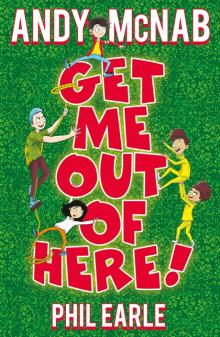 Get Me Out of Here!
Get Me Out of Here!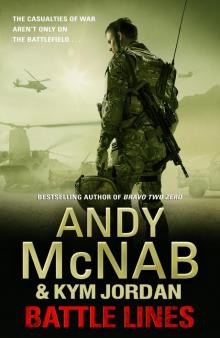 Battle Lines
Battle Lines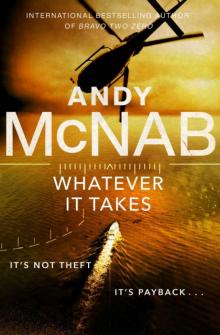 Whatever It Takes
Whatever It Takes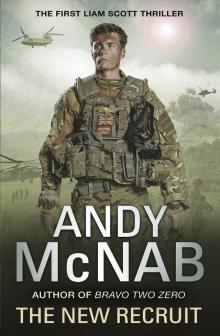 The New Recruit
The New Recruit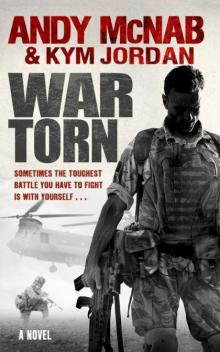 War Torn
War Torn Brute Force
Brute Force Crossfire
Crossfire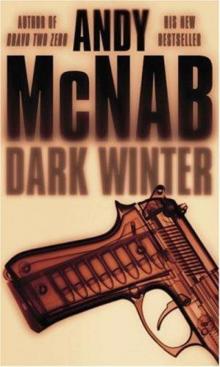 Dark Winter ns-6
Dark Winter ns-6 The Grey Man
The Grey Man Spoken from the Front
Spoken from the Front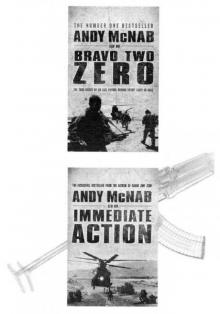 Meltdown
Meltdown Recoil
Recoil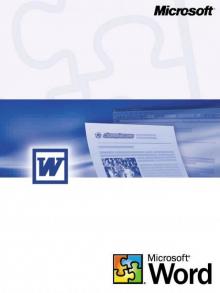 Nick Stone 1 - Remote Control.
Nick Stone 1 - Remote Control.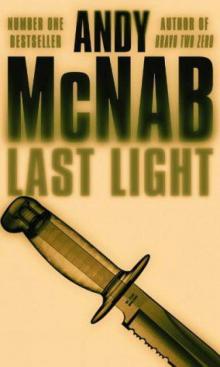 Last Light ns-4
Last Light ns-4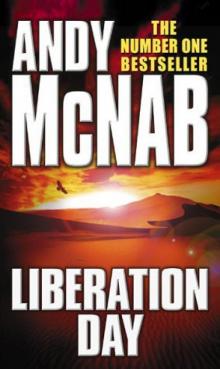 Liberation day
Liberation day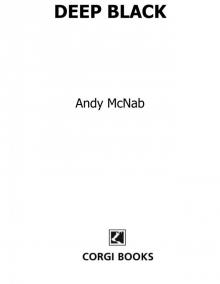 Deep Black
Deep Black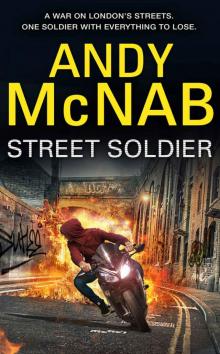 Street Soldier
Street Soldier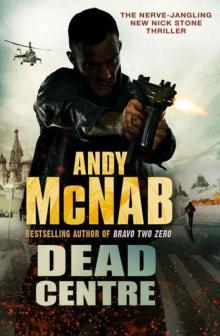 Dead Centre ns-14
Dead Centre ns-14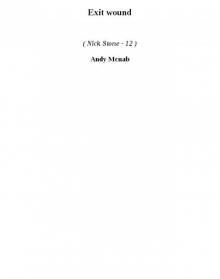 Exit wound ns-12
Exit wound ns-12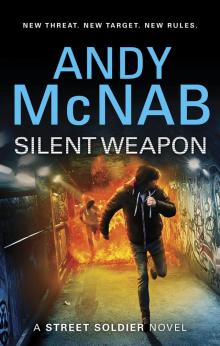 Silent Weapon
Silent Weapon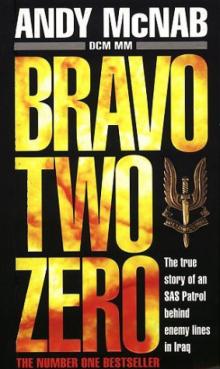 Bravo two zero
Bravo two zero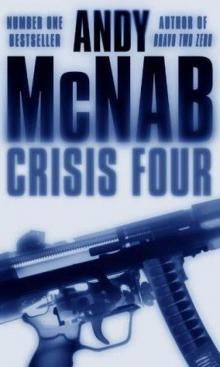 Crisis Four ns-2
Crisis Four ns-2 Red Notice
Red Notice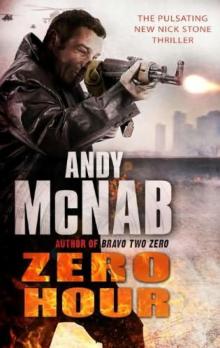 NS13 Zero Hour
NS13 Zero Hour Firewall
Firewall Last Light
Last Light Aggressor
Aggressor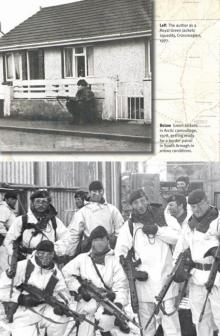 Seven Troop
Seven Troop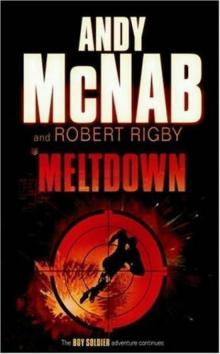 Meltdown bs-4
Meltdown bs-4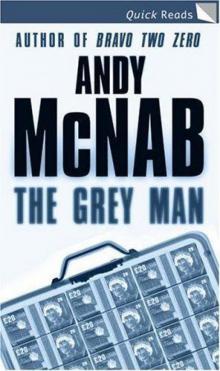 The Grey Man (quick reads)
The Grey Man (quick reads)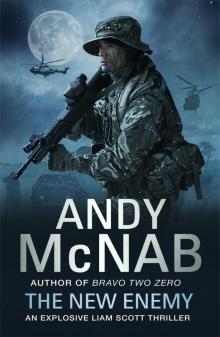 The New Enemy
The New Enemy Avenger
Avenger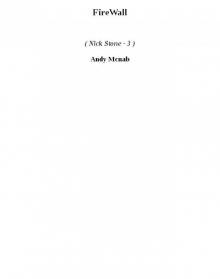 FireWall ns-3
FireWall ns-3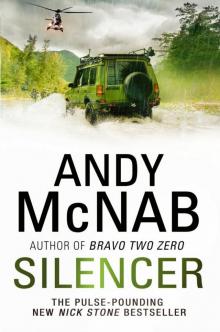 Silencer
Silencer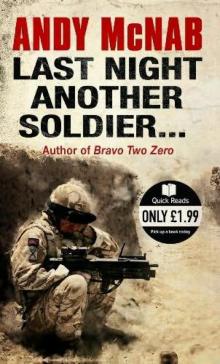 Last Night-Another Soldier…
Last Night-Another Soldier…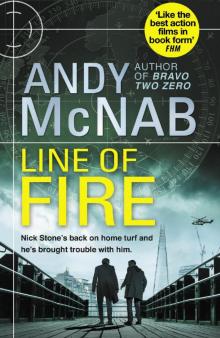 Line of Fire:
Line of Fire: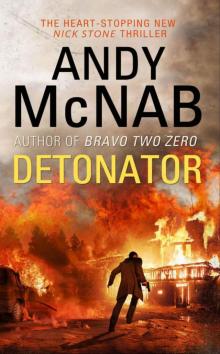 Detonator
Detonator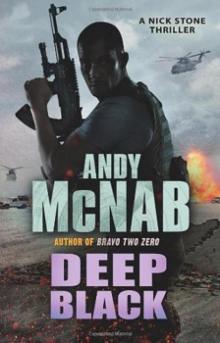 Deep Black ns-7
Deep Black ns-7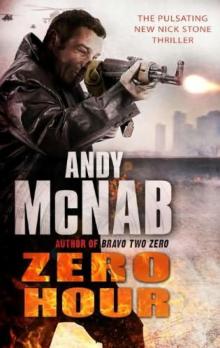 Zero Hour (2010) ns-13
Zero Hour (2010) ns-13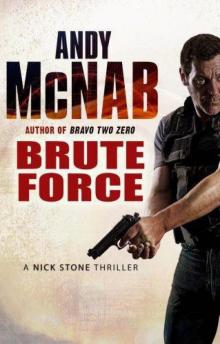 Brute Force ns-11
Brute Force ns-11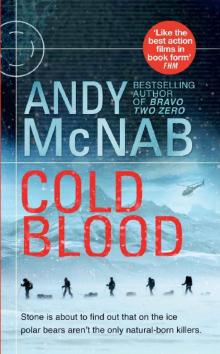 Cold Blood
Cold Blood Terminal Velocity
Terminal Velocity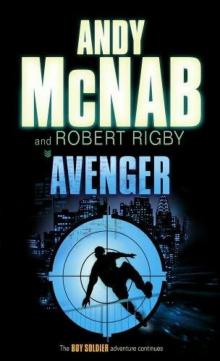 Avenger bs-3
Avenger bs-3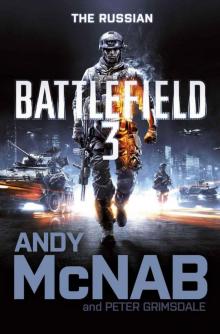 Battlefield 3: The Russian
Battlefield 3: The Russian DropZone
DropZone Zero Hour
Zero Hour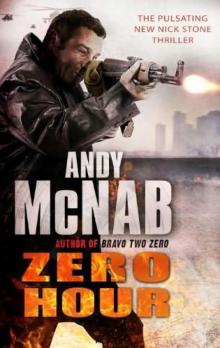 NS13 Zero Hour (2010)
NS13 Zero Hour (2010)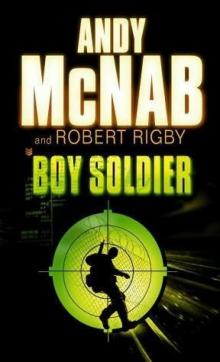 Boy soldier bs-1
Boy soldier bs-1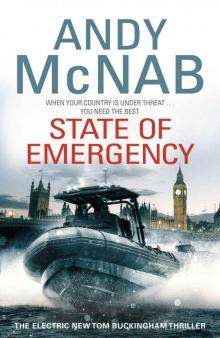 State Of Emergency: (Tom Buckingham Thriller 3)
State Of Emergency: (Tom Buckingham Thriller 3)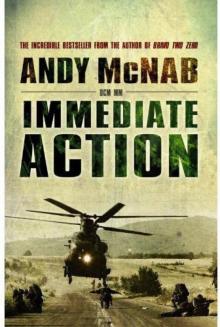 Immediate Action
Immediate Action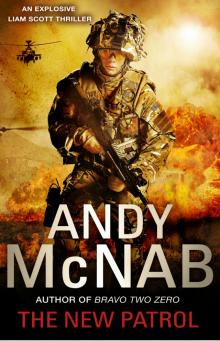 The New Patrol
The New Patrol Crisis Four
Crisis Four Boy Soldier
Boy Soldier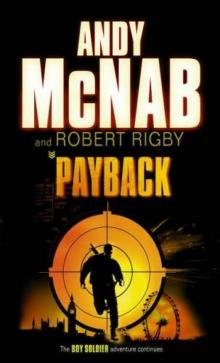 Payback bs-2
Payback bs-2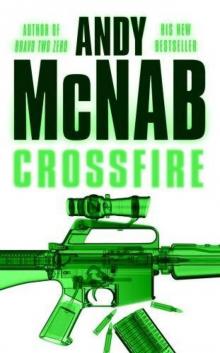 Crossfire ns-10
Crossfire ns-10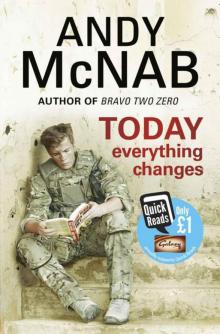 Today Everything Changes: Quick Read
Today Everything Changes: Quick Read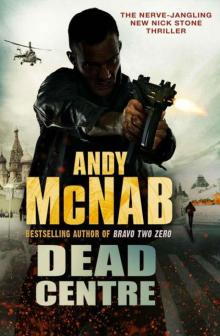 Dead Centre
Dead Centre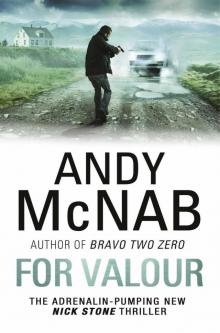 For Valour
For Valour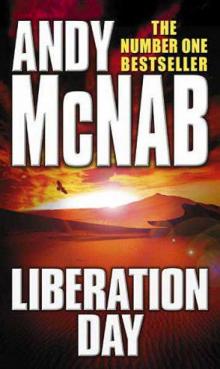 Liberation Day ns-5
Liberation Day ns-5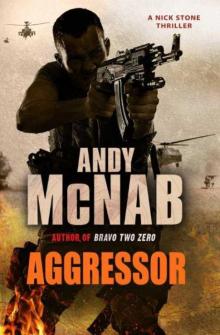 Aggressor ns-8
Aggressor ns-8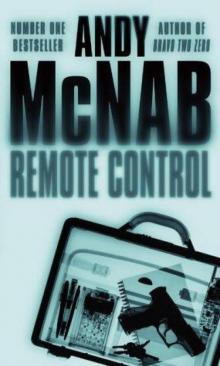 Remote Control ns-1
Remote Control ns-1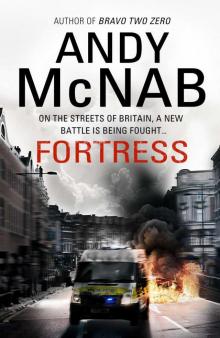 Fortress
Fortress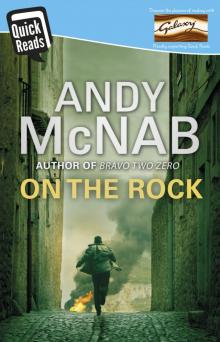 On the Rock
On the Rock Dark Winter
Dark Winter